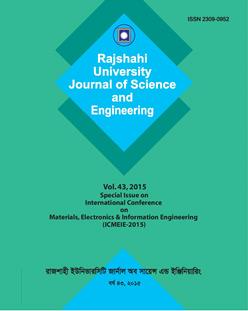On the Performance of Delay-Tolerant Routing Protocols in Intermittently Connected Mobile Networks
DOI:
https://doi.org/10.3329/rujse.v43i0.26177Keywords:
delay-tolerant network (DTN), intermittently connected mobile network (ICMN), opportunistic network environment (ONE) simulator, epidemic, PRoPHET, binary spray-and-wait, routing, simulationAbstract
Delay-Tolerant Networks are used to enable communication in challenging environments where nodes are intermittently connected, and an end-to-end path does not exist all the time between source and destination, e.g., Intermittently Connected Mobile Networks (ICMNs). Therefore, network environments, where the nodes are characterized by opportunistic connectivity, are appropriately modeled as Delay-Tolerant Networks (DTNs). In this paper, we have investigated the performance of DTN routing protocols, namely Epidemic, PRoPHET, and Spray-and-Wait (Binary version) in an ICMN scenario. Their performances are analyzed in terms of delivery probability, average latency, and overhead ratio of varying message generation rates and number of mobile nodes, respectively. In addition, the impacts of varying buffer size and Time-to-Live (TTL) on their performances are investigated. For evaluating these performance metrics, we have used Opportunistic Network Environment (ONE) simulator as the simulation tool. The outcome of this work shows that for the ICMN scenario, the best DTN routing technique is Binary Spray-and-Wait, whereas Epidemic routing exhibits the worst performance in terms of all the metrics considered here.
Downloads
287
293

